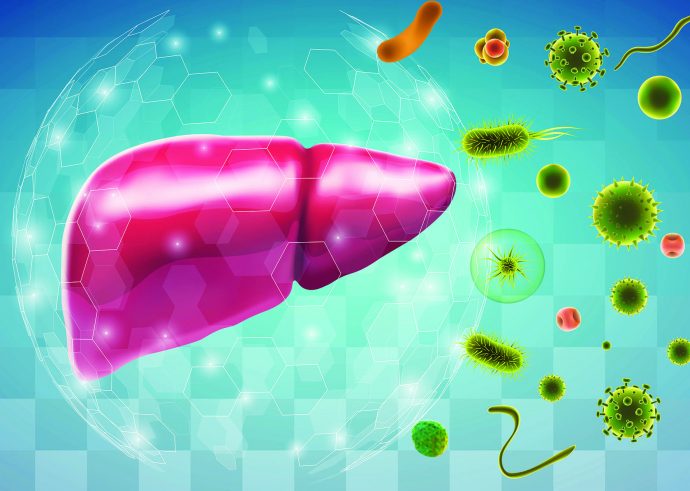As parents, it is essential to be aware of the diseases that can affect our children; this includes conditions that affect the liver. Understanding these diseases is often the first step parents can take to ensure their children receive the best care and support for their growth and well-being.
The mighty functions of the liver
Many are aware of the liver’s detoxification role, where it removes toxins and waste from our blood. The waste eventually leaves the body through our urine.1 However, many are unaware that the liver is known to have over 500 distinct roles in our body.1 Here is an overview of the key functions of the liver:
| Summary of the Key Functions of the Liver1 |
| · Aids digestion through the production of bile – a fluid that helps break down and absorb nutrients (e.g. fats, vitamins, etc.)
· Storage of energy in the form of sugar · Storage of vitamins and minerals (e.g. vitamin A, D, E, K, and B12) · Production of proteins (e.g. blood clotting proteins, hormones, etc.) · Protection against infections |
Different types of liver diseases in children
The liver is the second largest organ in the human body, and much like other organs, it is susceptible to a range of different diseases.2 Examples of liver diseases in children include:
- Acute Liver Failure – A sudden and rapid loss of ability to function, usually in a matter of days.2It can occur to children of any age, and can be caused by viral infections, genetic diseases of the liver, exposure to certain environmental toxins (e.g. wild mushrooms, insecticides, etc.), and certain medications.3
- Viral Hepatitis – Inflammation of the liver caused by a viral infection (e.g. hepatitis A, B, C, D, and E viruses).2 The different types of viral hepatitis are categorised based on the type of infecting hepatitis virus, which all have their own distinct clinical implications. For example, hepatitis A can cause diarrhoea, vomiting, and abdominal pain in children.4Hepatitis B, on the other hand, can lead to a chronic condition that can result in permanent scarring of the liver, liver failure, or even liver cancer.5
- Genetic diseases– Certain genetic diseases, such as Alagille syndrome, Crigler-Najjar syndrome, glycogen storage disease type 1 and many more, can affect the liver.6 These genetic conditions can disrupt the normal function of the liver.
- Non-alcoholic Fatty Liver Disease (NAFLD)– A common chronic liver disease in children which results from an excessive build-up of fat in the liver.6 Over time, this can develop into Non-alcoholic Steatohepatitis (NASH), which can cause inflammation and damage to the liver.7
Prevention of liver diseases in children
The prevention of liver diseases depends on the cause. Here are some tips to prevent liver diseases in children:
- Consider getting vaccinated. Certain infectious causes of liver disease (e.g. hepatitis A and B) can be prevented through vaccinations.8 Hepatitis vaccines are available separately (hepatitis A or B vaccine) or as a combination (hepatitis A and B vaccine). Speak with your doctor to learn more about hepatitis vaccines in children.9
- Practice general hygiene measures. The spread of infections, including those that cause hepatitis, can be reduced by taking certain measures like washing your hands regularly, avoiding the ingestion of contaminated water/food, etc.8
- Ensure healthy nutrition. As obesity is a known risk factor for non-alcoholic fatty liver disease (NAFLD), ensuring healthy nutrition can help prevent its development. This includes eating a balanced, moderate, and varied diet that includes plenty of fresh fruits and vegetables.8
- Ensure a healthy and active lifestyle. In addition to healthy nutrition, it is also important to ensure that your child gets regular exercise and sufficient sleep at night. This can help to maintain a healthy body weight and stave off NAFLD.8
Conclusion
Parents should ensure a good understanding of the various liver diseases that can affect children. By being aware of the risks and taking preventive measures, parents can play an active role in protecting their little ones from liver-related health issues.





